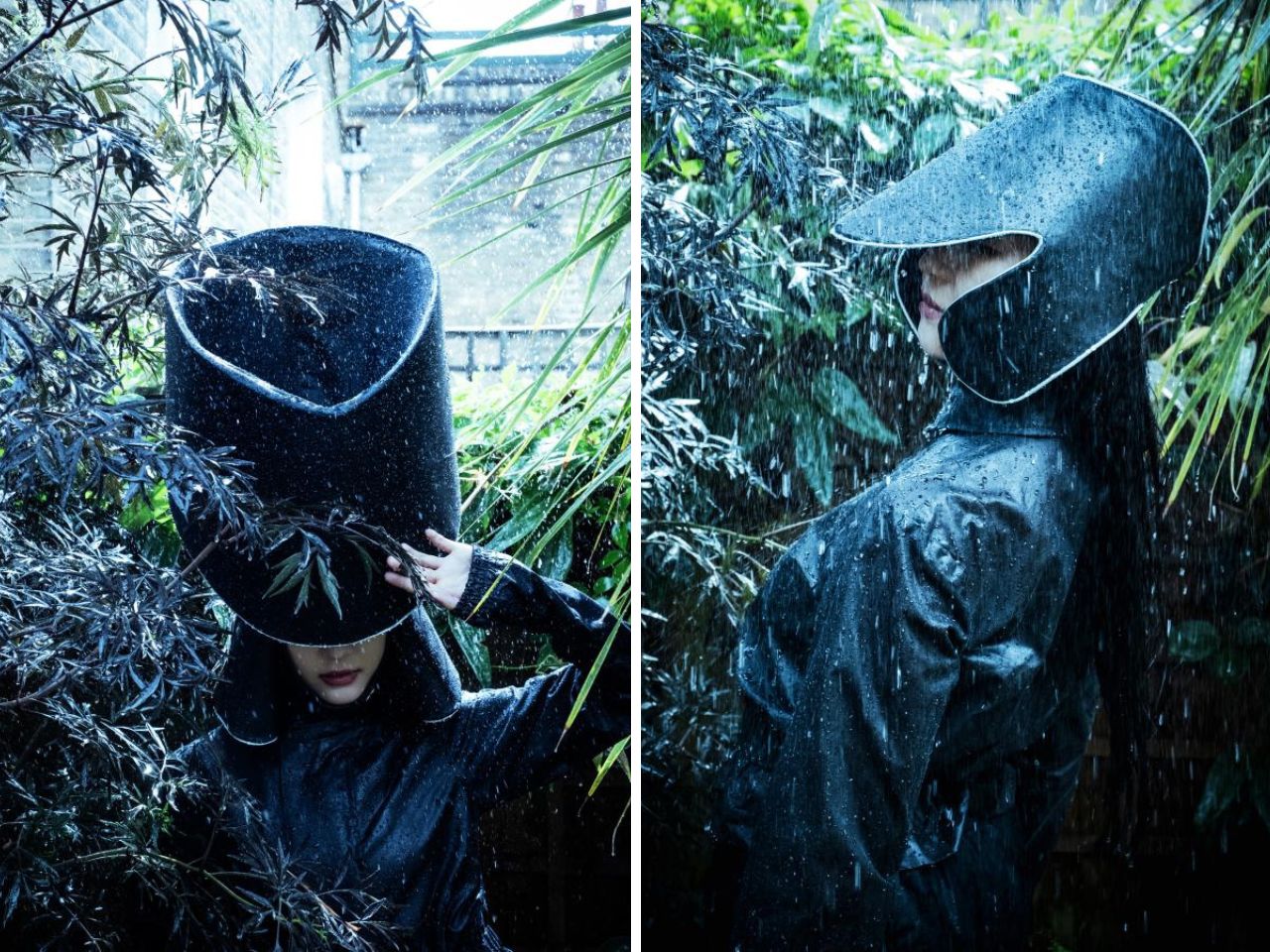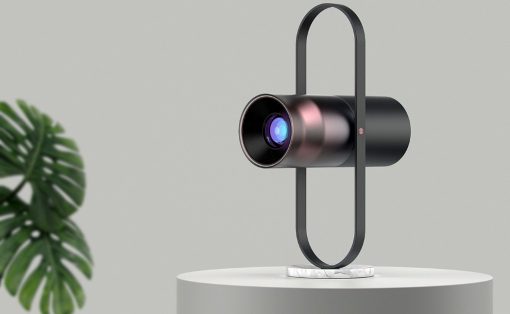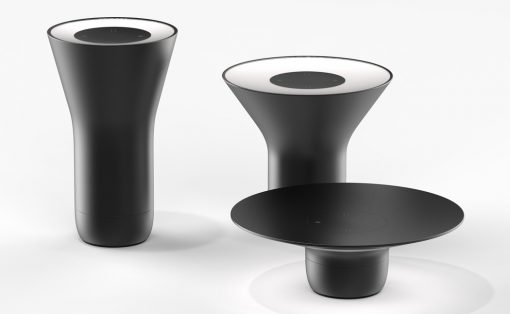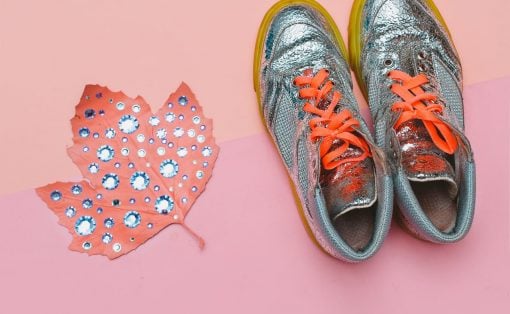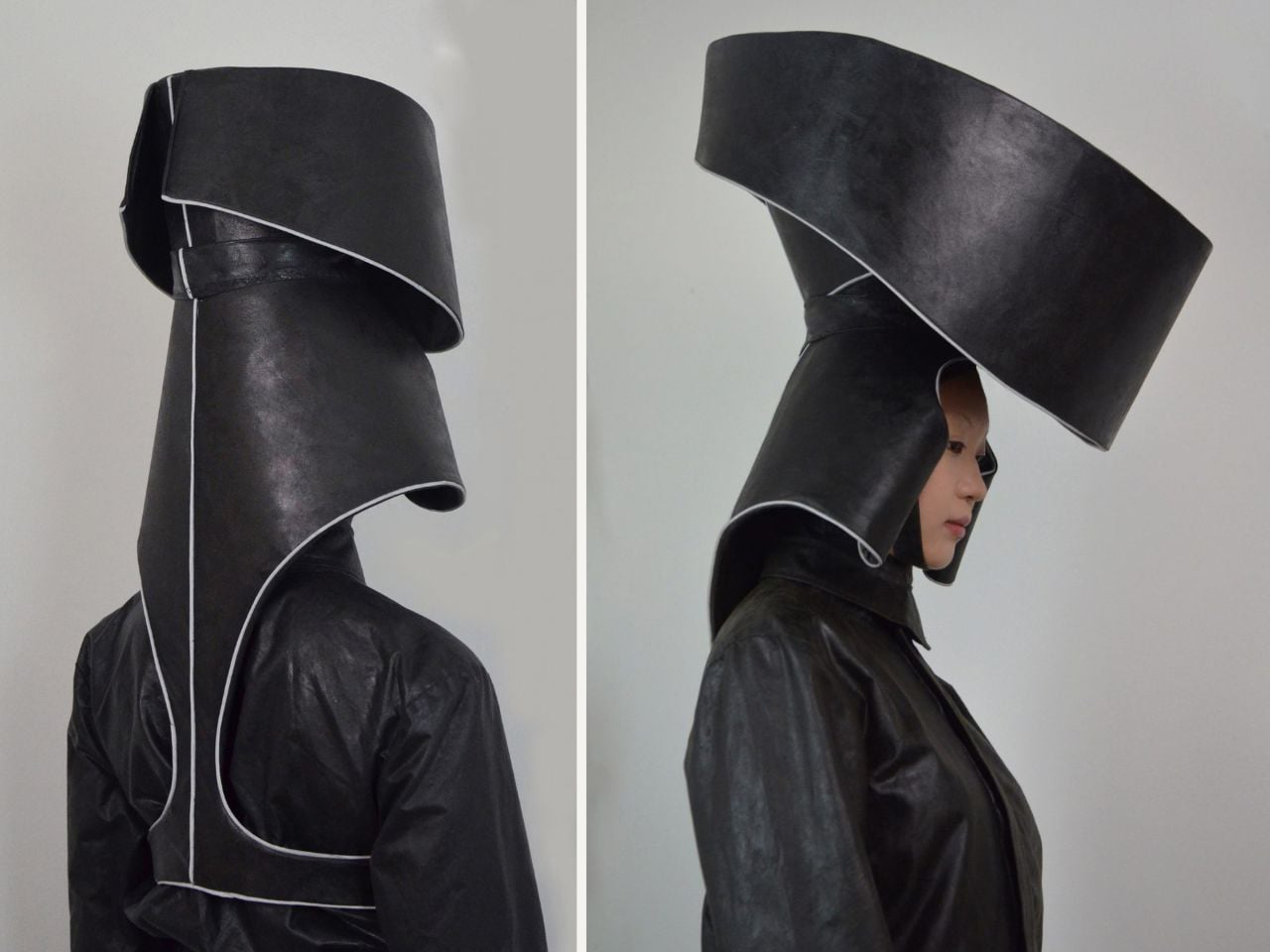
It’s no news that climate change continues to reshape our environment, innovative solutions that blend practicality with provocation are more necessary than ever. Designer Mijoda Dajomi’s latest project, Daughters of Rain, steps boldly into this space, merging fashion with environmental consciousness to address one of the most pressing issues of our time: freshwater scarcity.
Designer: Mijoda Dajomi
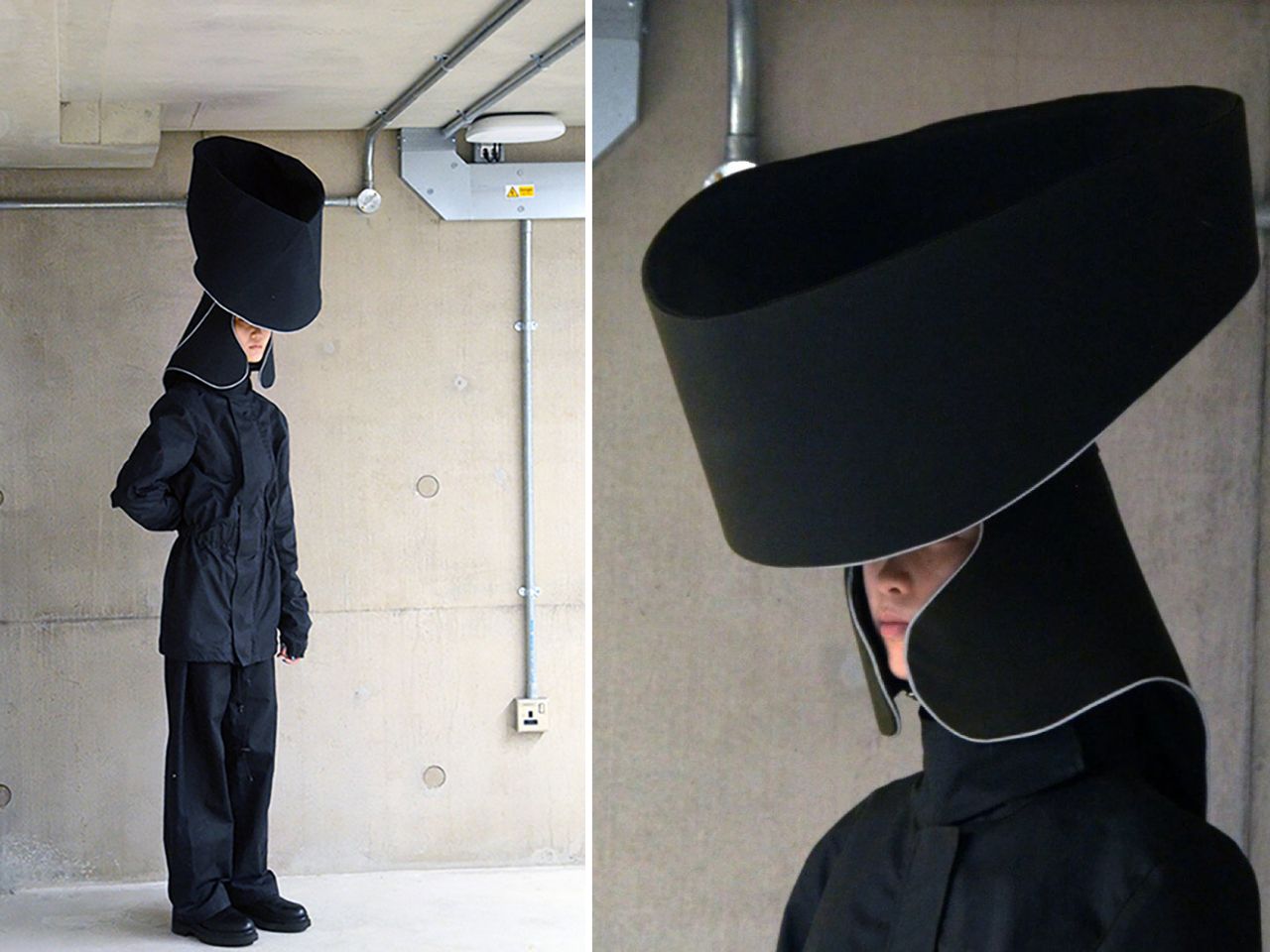
As her graduate project at the London College of Fashion, Dajomi crafted a collection of rain-harvesting hats that are not only visually striking but also functionally innovative. The headwear, designed to capture and store rainwater, serves as a speculative response to a future where water becomes an increasingly scarce resource. In this imagined 2085, the simple act of rain falling from the sky transforms into a moment of communal reverence, a chance to collect every precious drop.
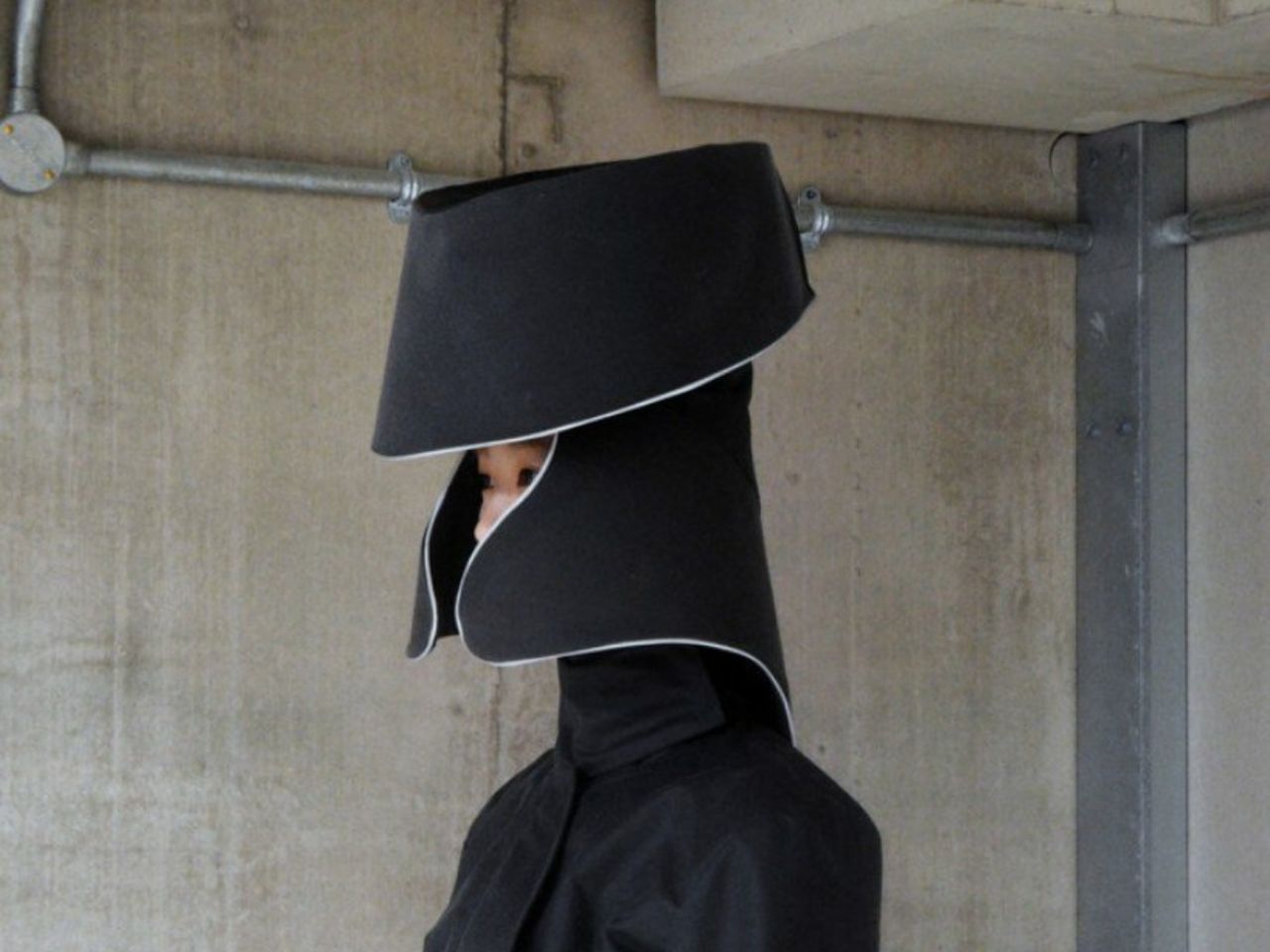
The collection encapsulates the duality of fashion and function. Crafted from waxed cotton, a fabric donated by luxury brand Barbour, and further treated with organic beeswax. This hat is designed to be both stylish and sustainable. Its leather-like appearance and sturdy construction allow it to capture up to 5 liters of rainwater while being worn. Dajomi’s choice of materials ensures that the hat not only repels water but also effectively collects and retains it without leaks.
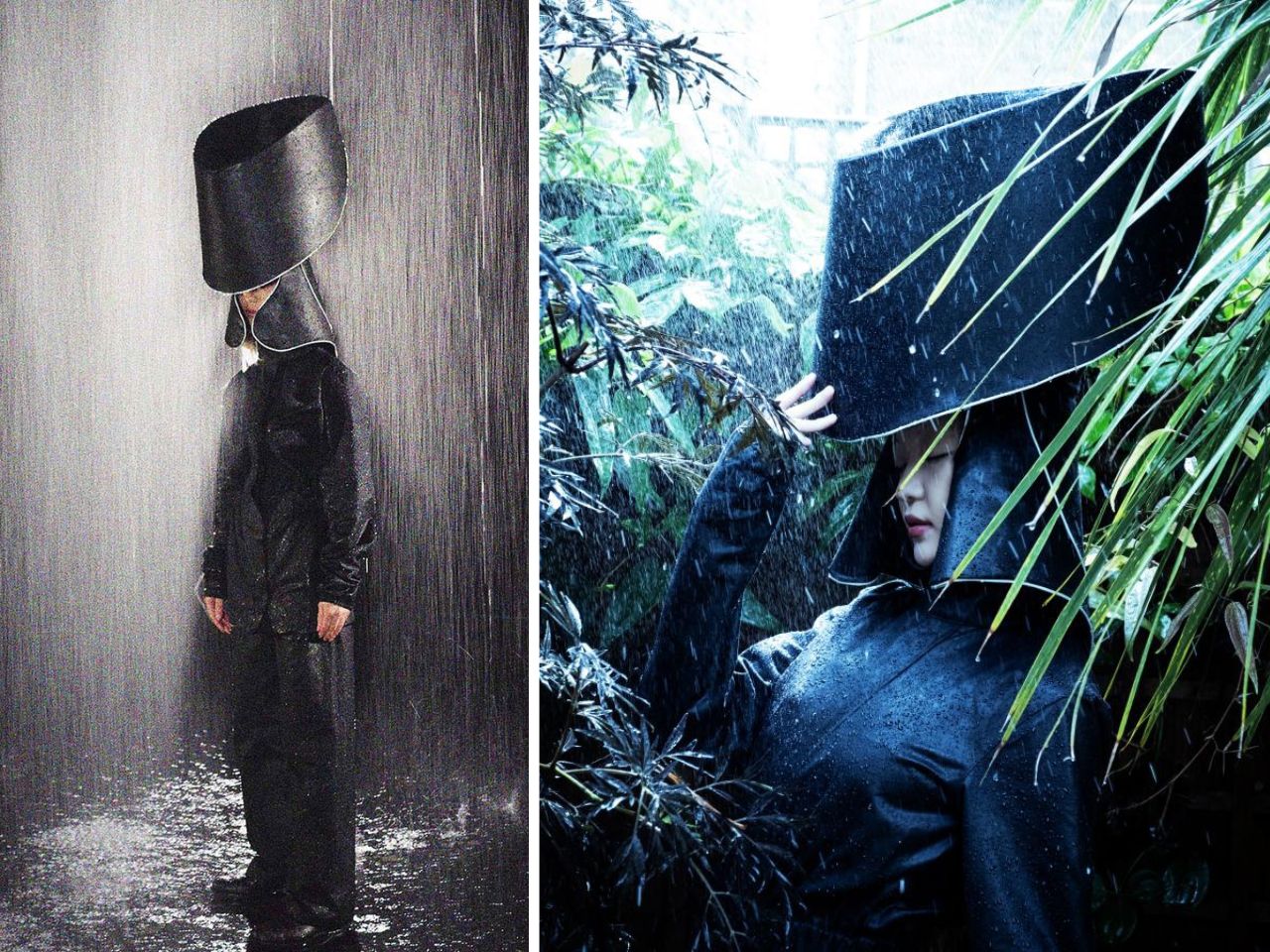
However, Dajomi’s Daughters of Rain is not yet a product line; it remains a powerful commentary on the environmental challenges we face. Dajomi explained that while her hats are designed to function as rainwater harvesting tools, the primary purpose of her work is to provoke thought, raise awareness, and spark conversation about our relationship with water and the environment. This ethos is woven into the very fabric of the collection, which draws inspiration from the attire of lay sisters – women dedicated to charity and social causes. Just as these sisters united in their mission, the Daughters of Rain are imagined as a future collective that serves their communities by managing and distributing the vital resources of rainwater.
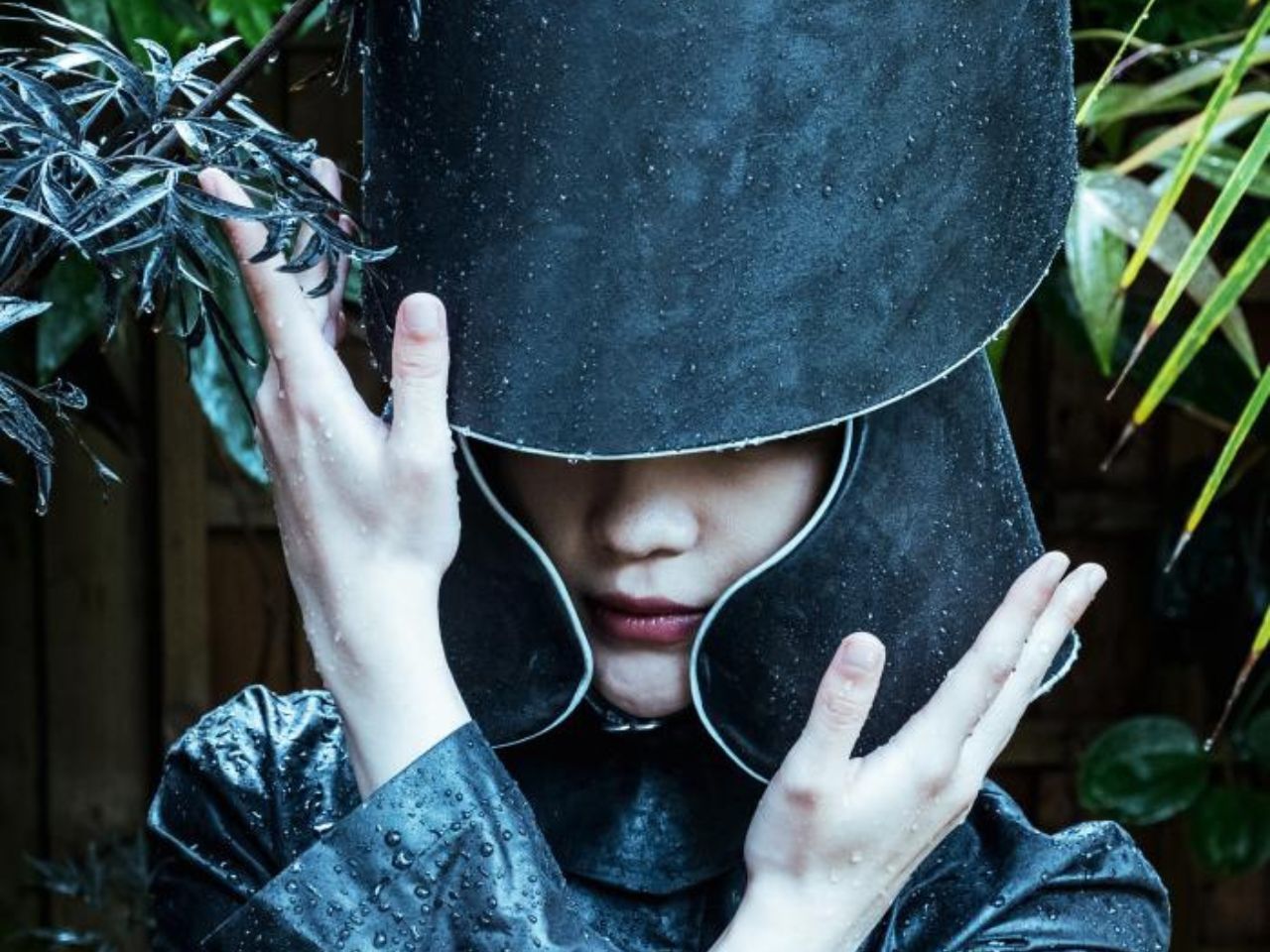
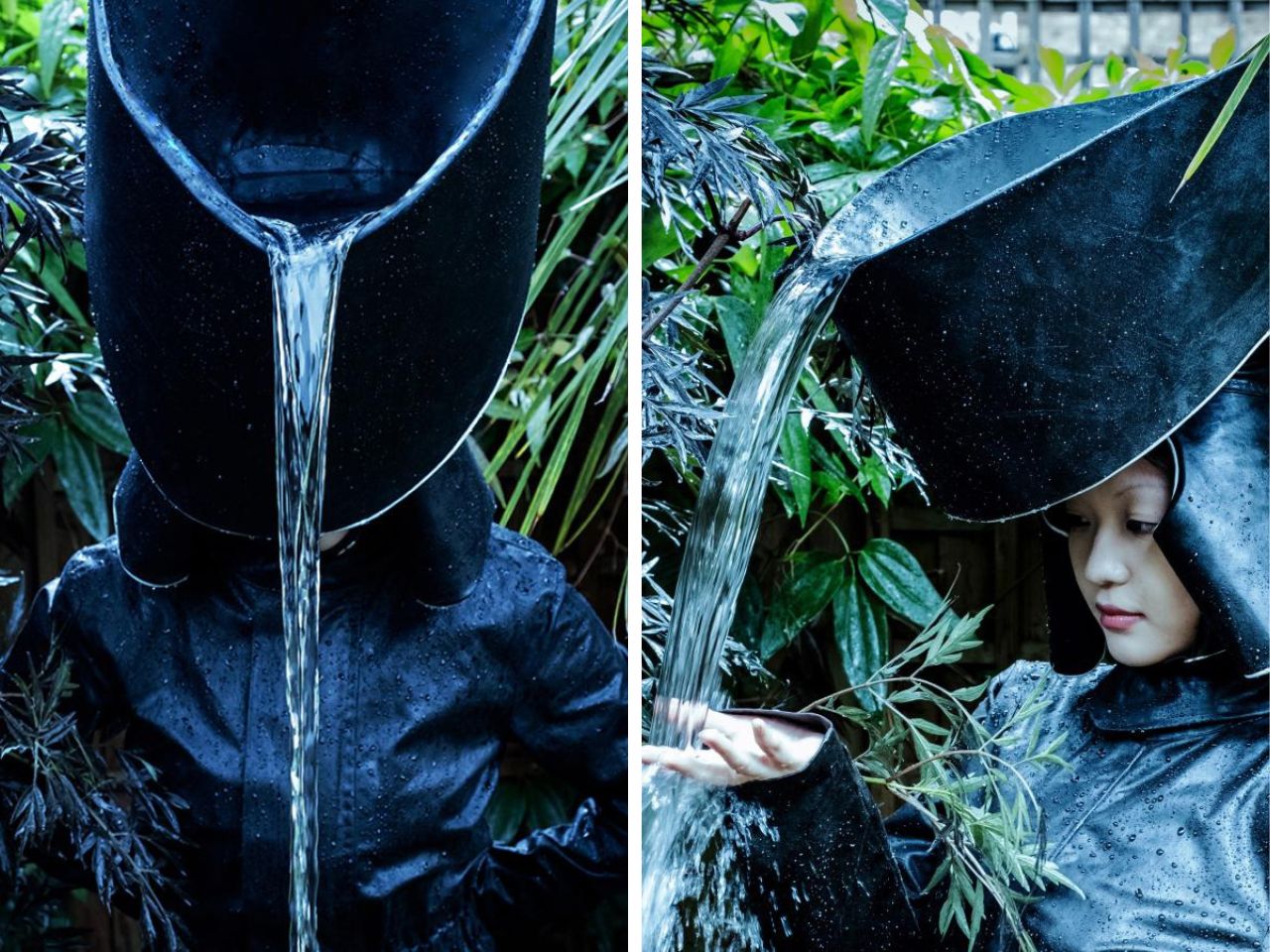
This project serves as a testament to the power of fashion as a medium for social and environmental change. Fashion, as one of the oldest forms of human expression, has always had the potential to influence thought and behavior. By leveraging this potential, the designer aims to make a statement that transcends traditional environmental activism. As a designer deeply passionate about the environment, nature, and headwear design, Dajomi stated that her goal is to blend creativity with environmental consciousness. Her project is intended to make an environmental statement, using the language of fashion to raise public awareness about critical ecological issues.
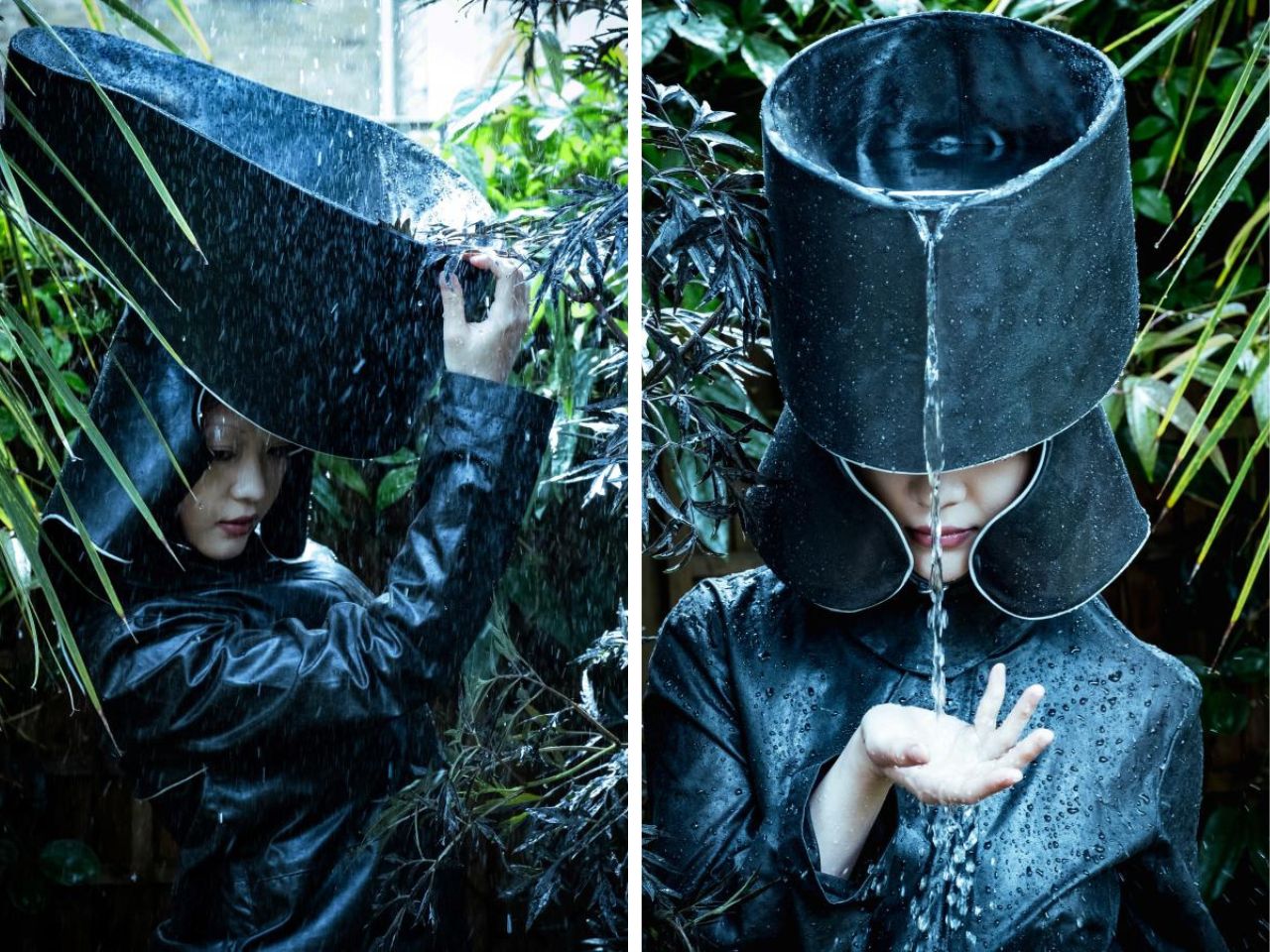
The world is saturated with news reports and environmental campaigns, but it’s initiatives like Daughters of Rain that stand out—unexpected, visually arresting, and deeply thought-provoking. By challenging us to envision a future where fashion is both a tool for survival and a symbol of environmental stewardship, Mijoda Dajomi’s work reminds us of the power of creativity in shaping our collective future. As we grapple with the realities of climate change, projects like this serve as a poignant reminder that the choices we make today will determine the world we inhabit tomorrow.
